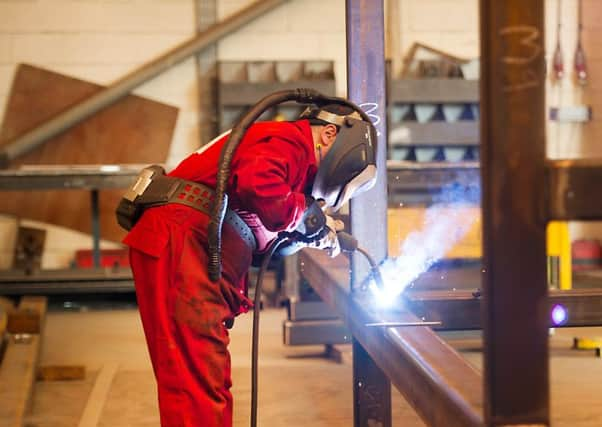Engineers fear worst is yet to come after Brexit vote
This article contains affiliate links. We may earn a small commission on items purchased through this article, but that does not affect our editorial judgement.


Bryan Buchan, chief executive of trade body Scottish Engineering, said the first waves of the “economic tsunami that is Brexit” had already had an impact.
The uncertainty created by the UK’s impending departure from the EU – along with suggestions of another Scottish independence referendum – had exacerbated already tough trading conditions, he said.
Advertisement
Hide AdAdvertisement
Hide Ad“We appear to have been hit on all fronts,” Buchan said. “The potential benefits of a weaker pound for exports have yet to be realised and our figures show there has been substantial downturn in export orders.
“At the same time, we have seen a significant rise in commodity prices, notably metals including nickel and zinc, which is impacting directly on companies involved in fabrication and galvanising in particular.”
Order levels have been negative for seven consecutive quarters, and fell sharply in the latest three-month period to September. Of those surveyed, 23 per cent said order intake was up versus 45 per cent reporting a drop, with the resulting balance of -22 per cent the worst since 2009.
“We find ourselves in a unique position, quite different to the general recession experienced in 2008, in that this situation affects the UK in isolation and there remains great uncertainty as to how the economic impacts will play out,” Buchan said.
“By their nature, the negotiation of trade agreements is protracted and we can expect possibly two years of further uncertainty as these are hammered out.”
UK orders remained unchanged against the previous quarter at a balance of -19 per cent, but export orders tumbled to -30. Small, medium and large firms all reported negative figures, as did every sector bar electronics.
Plans for capital investment remain in negative territory while staffing levels, which have tended to be less volatile of late, dipped sharply. The latter was led by small and medium-sized firms, with small firms reporting negative balances on staffing levels of -9 per cent and medium-sized firms -11. Large firms reported a positive balance of +13 per cent on staffing levels.
Optimism has faded, with no positive readings among any size of firm nor in any sector. Small companies were the most downbeat of all at -25 per cent, followed by large companies on -13 and medium-sized enterprises at -8.
Advertisement
Hide AdAdvertisement
Hide AdBuchan added: “There is a serious concern in our sector that the worst may be yet to come and we are unlikely to see any salvation from a recovery in oil prices in the near future.
“A common theme in visiting some of our member companies is that ‘the phones have gone very quiet’.”
